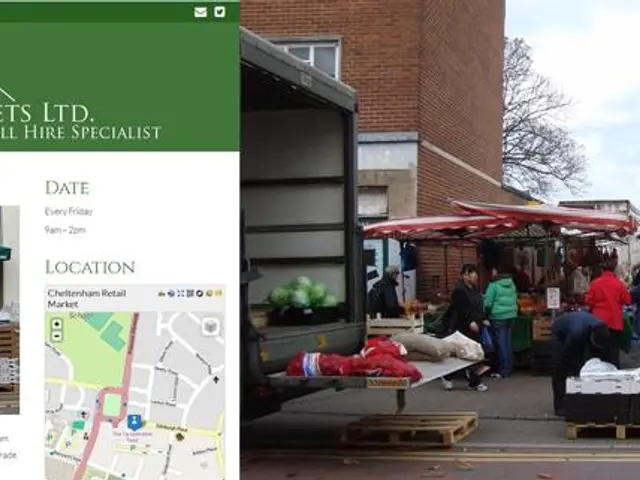Reconsidering Personal Finance: Exploring Unconventional Methods Adopted by Californians
In the dynamic landscape of personal finance, Californians in 2025 are adapting to the ever-evolving economic climate by embracing a wide array of modern approaches. From leveraging technology to manage finances more efficiently, to diversifying income sources and tapping into community resources, Californians are redefining what it means to be financially "smart."
One of the most significant shifts is the rise of AI-powered budgeting tools, which are increasingly being used to personalize financial management and automate routine tasks. These tools help individuals optimize spending and saving, providing a more streamlined approach to managing finances.
Side hustles remain popular, with Californians seeking supplemental income sources amid economic shifts. Gig economy platforms and local opportunities are being leveraged to generate additional income, offering flexibility and the potential for higher earnings.
Another trend is fractional real estate investment, which allows individuals to invest in property with lower capital. Startups like Arrived and Fintor are making it possible for investors to receive a portion of rent income and potential appreciation without the hassle of landlords, inspections, or mortgages.
Cutting recurring fees and subscription services is a common strategy to control expenses, given rising personal loan rates and living costs. Apps like Rocket Money or Trim are popular among millennials and Gen Z users in tech-friendly areas, making it easy to cancel unused subscriptions with a few taps.
Work-life flexibility is being prioritized, with more people choosing jobs or arrangements that balance income needs and personal well-being. This shift often includes more budgeting discipline and clearer limits on consumer spending.
Bartering and peer trade networks have seen a revival as means for communities to exchange goods and services without relying solely on cash. In some areas of California, these networks are flourishing, allowing residents to trade goods like furniture, clothes, baby gear, tools, and garden space.
Crypto futures trading and community currencies are being embraced by some as alternative financial tools and investments, reflecting growing tech adoption and a search for new wealth-building avenues.
Renting out space, such as through short-term rentals or shared housing, remains a way to generate income given California's housing prices and tax changes benefiting homeowners.
Health-based wealth focuses on integrating physical and financial wellness, with Californians prioritizing health investments as part of long-term security.
New government programs, such as guaranteed income pilots in Sacramento County, reflect policy efforts to provide financial stability for vulnerable families. The recent expansion of the SALT deduction also provides significant tax relief to many California homeowners, potentially influencing personal financial strategies around home buying and ownership.
However, concerns about artificial intelligence potentially taking jobs remain prevalent, with more than half of Californians expressing fears in 2023. As technology continues to advance, it will be interesting to see how Californians navigate this challenge while continuing to adapt their personal finance strategies.
In conclusion, Californians in 2025 are leveraging technology, diversified income sources, community resources, and policy changes to rethink and adapt their personal finance strategies in response to economic realities and emerging opportunities. This shift towards a more modern and adaptable approach to personal finance is a testament to the resilience and innovation of Californians in the face of changing economic landscapes.
- The use of AI-powered budgeting tools is becoming commonplace in personal finance, helping individuals optimize their spending and saving by automating financial tasks.
- A growing number of Californians are seeking supplemental income through side hustles, utilizing platforms like gig economy platforms and local opportunities for added income.
- Fractional real estate investment, which enables individuals to buy a portion of properties with lower capital, is becoming a popular way to invest in the real estate market, thanks to startups like Arrived and Fintor.
- Controlling expenses by cutting unwanted subscriptions is a popular strategy among millennials and Gen Z users in tech-friendly areas, with apps like Rocket Money and Trim making it simple to cancel unused services.
- As work-life balance becomes a priority, people are choosing jobs or arrangements that balance income and personal well-being, often accompanied by stricter budgeting and limitations on consumer spending.
- Bartering and peer trade networks are experiencing a revitalization, allowing Californians to exchange goods and services without cash, such as furniture, clothes, baby gear, tools, and garden space.







